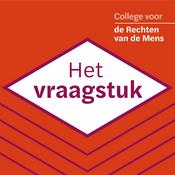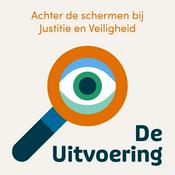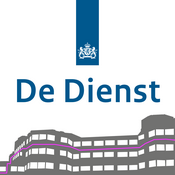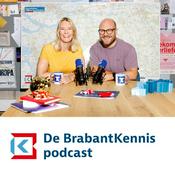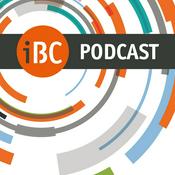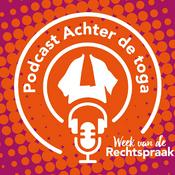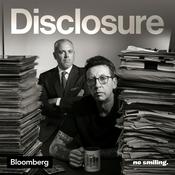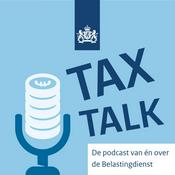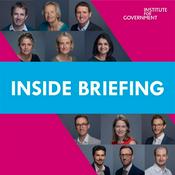37 afleveringen

Institutions fuel prosperity, make them inclusive and capable
16-10-2024 | 30 Min.
Daron Acemoglu, the newly minted Nobel prize laureate in Economics and distinguished Institute Professor at the Massachusetts Institute of Technology (MIT), debunks for us some long-standing assumptions about technology, productivity, and shared prosperity. Benefits do not automatically tickle down from industry to workers. Distributive gains take inclusive institutions and a calibrated approach that creates greater competition, changes the norms in the industry, and deals specifically with market failures via a host of incentives, subsidies, taxes, and regulations. In the case of the tech industry, that starts with a vision that is pro-worker and pro-democratic – the opposite of what Acemoglu characterizes as the current Silicon Valley equilibrium. Finally, we are asked to think very critically about some of the trending policy solutions. Universal basic income is not the silver bullet some see it to be. Data value and its distribution, on the other hand, deserve great attention. Data is going to be as important as land is to production. How do we treat it as such? Find answers in his discussion with Gabriela Ramos, UNESCO’s Assistant Director-General for Social and Human Sciences.Hosted on Ausha. See ausha.co/privacy-policy for more information.

Social media and trust in science – “it’s complicated”
13-10-2024 | 38 Min.
Much guilt for the erosion of public trust in science is laid at the feet of social media. Does data support such fears? Homero Gil de Zuñiga Navajas and Brigitte Huber conducted a 20-country study that looked into this relationship and they say… “it’s complicated”. Social media news use is positively related to trust in science, yet worries about echo chambers and polarization are real. They also say that there is little fake news on social media, but it’s the concentration and effects that are concerning. The majority of fake news hits a small group of people, who are dragged into rabbit holes by algorithms and their own curation of content. But look on the bright side. There is room for everything on social media. Scientists and policy makers need to discern paths to positive outcomes. From using micro-targeting, to banking on users' need for cognition, to tailoring campaigns to personality traits – social media has “tricks”. Are we ready to employ them? Find out in their discussion with UNESCO’s Iulia Sevciuc .Hosted on Ausha. See ausha.co/privacy-policy for more information.

Infantilized and unequal – the public sector is struggling when it’s needed the most
10-9-2024 | 24 Min.
Charles Landry, author and president of the Creative Bureaucracy Festival, talks to us about how the public sector has been weakened from within through consistent reduction in its capacities and expertise. Cuts in analytical, foresight and strategic entities have not gone unfelt in crises. Under pressure to deliver, the public sector has been increasingly reaching to the market and outsourcing work. Spending and over-reliance on external consultants have, expectedly, mounted. Equally important is that such a trend has infantalized the public sector and put it on an unequal footing – through imbalanced access to intellectual resources and investments – with external consultants. Are there ways out ? Find out in his discussion with UNESCO 's Iulia Sevciuc.Hosted on Ausha. See ausha.co/privacy-policy for more information.

Too risk averse, too path dependent – redesign governance systems to face shocks
08-8-2024 | 42 Min.
Mark Esposito, Professor at Hult International Business School and Adjunct Professor of Public Policy at Georgetown University, joins us today to discuss crisis and resilience. He dissects the concrete markers of a resilient system and discusses what helps it withstand (and possibly thrive in) turmoil. The number of shocks will only increase, hence it is high time to in-build agility and implicit fragility into our systems. When it comes to governance and decision-making, there is a lot of destigmatization that needs to be done on the concept of failure. In crisis, the speed of response and pivoting may be more critical than accuracy. Yet we’re bound by institutional legacies that have not been stress-tested for the mega challenges of today and operate under the assumption that decision-making must be successful 100 percent. How to regroup? Follow his discussion with UNESCO's Iulia Sevciuc for solutions.Hosted on Ausha. See ausha.co/privacy-policy for more information.

There is no refuge in the lab, science needs to reach out
08-7-2024 | 36 Min.
Sudip Parikh, CEO of the American Association for the Advancement of Science and Executive Publisher of the Science journals, talks to us about major trends in science and how they affect us all. He begins by saying that populism and polarisation are taking hold of science. Belonging to a group – be it political, faith-based or any other – becomes more important than the truth and scientific fact. Taking refuge in the laboratory and its rationality is no longer an option. Science needs to tailor its communication to the publics and, importantly, to step up its engagement with policy. That is not a zero-cost shift. Concrete incentives are needed not only to trigger the right reforms in our traditional structures of science and government, but also to counteract current incentives for active disinformation. And, more than ever, social sciences need to help us navigate the trends and understand the experiments run on global populations in real time. How all this is to be achieved? Find out in his discussion with Gabriela Ramos, UNESCO’s Assistant Director-General for Social and Human Sciences.Hosted on Ausha. See ausha.co/privacy-policy for more information.
Meer Overheid podcasts
Trending Overheid -podcasts
Over The Policy Nerd, by UNESCO
Luister naar The Policy Nerd, by UNESCO, Global Intelligence Weekly Wrap up en vele andere podcasts van over de hele wereld met de radio.net-app
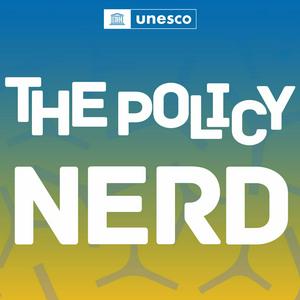
Ontvang de gratis radio.net app
- Zenders en podcasts om te bookmarken
- Streamen via Wi-Fi of Bluetooth
- Ondersteunt Carplay & Android Auto
- Veel andere app-functies
Ontvang de gratis radio.net app
- Zenders en podcasts om te bookmarken
- Streamen via Wi-Fi of Bluetooth
- Ondersteunt Carplay & Android Auto
- Veel andere app-functies


The Policy Nerd, by UNESCO
download de app,
luisteren.


